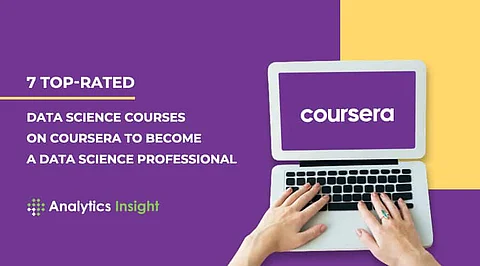

The field of data science is growing with increasing demand. Data science is not limited to only consumer goods or tech or healthcare. There is a high demand to optimize business processes using data science from banking, transport to manufacturing. Organizations are now hiring data science professionals to deal with complex data. To become an expert in data science read the article and check out the list of top-rated data science courses on Coursera.
Johns Hopkins University
This Specialization includes the concepts and tools that one needs throughout the entire data science channel, from asking the right kinds of questions to making inferences and publishing results. In this course, you can apply the skills learned by developing a data product using real-world data. At completion, you will have a portfolio demonstrating your expertise in the material.
Johns Hopkins University
This Specialization involves foundational data science tools and techniques, including getting, cleaning, and exploring data, programming in R, and conducting reproducible research. Learners who complete this specialization will be prepared to take the Statistics and Machine Learning specialization, in which they create a data product using real-world data. There are five courses in this specialization that are the very same courses that make up the first half of the Data Science Specialization.
IBM
This Professional Certificate from IBM will help anyone interested in pursuing a career in data science or machine learning develop career-relevant skills and experience.
The program consists of 9 online courses that will serve you with the latest job-ready tools and skills, including open-source tools and libraries, Python, databases, SQL, data visualization, data analysis, statistical analysis, predictive modeling, and machine learning algorithms. Students will learn data science through hands-on practice in the IBM Cloud using real data science tools and real-world data sets.
University of Michigan
This course will introduce the core data structures of the Python programming language. We will move past the basics of procedural programming and explore how we can use the Python built-in data structures such as lists, dictionaries, and tuples to perform increasingly complex data analysis. This course will cover Chapters 6-10 of the textbook "Python for Everybody". This course covers Python 3.
Johns Hopkins University
In this course, you will learn how to program in R and how to use R for effective data analysis. You will learn how to install and configure software necessary for a statistical programming environment and describe generic programming language concepts as they are implemented in a high-level statistical language. The course covers practical issues in statistical computing which includes programming in R, reading data into R, accessing R packages, writing R functions, debugging, profiling R code, and organizing and commenting R code. Topics in statistical data analysis will provide working examples.
University of Michigan
The 5 courses in this University of Michigan specialization introduce learners to data science through the python programming language. This skills-based specialization is intended for learners who have a basic python or programming background, and want to apply statistically, machine learning, information visualization, text analysis, and social network analysis techniques through popular python toolkits such as pandas, scikit-learn, nltk, and network to gain insight into their data.
Introduction to data science in Python (course 1), Applied Plotting, Charting & Data Representation in Python (course 2), and Applied Machine Learning in Python (course 3) should be taken in order and before any other course in the specialization. After completing those, courses 4 and 5 can be taken in any order. All 5 are required to earn a certificate.
University of California
This course is designed to give you a primer in the fundamentals of SQL and working with data so that you can begin analyzing it for data science purposes. You will begin to ask the right questions and come up with good answers to deliver valuable insights for your organization. This course starts with the basics and assumes you do not have any knowledge or skills in SQL. It will build on that foundation and gradually have you write both simple and complex queries to help you select data from tables. You'll start to work with different types of data like strings and numbers and discuss methods to filter and pare down your results.
Join our WhatsApp Channel to get the latest news, exclusives and videos on WhatsApp
_____________
Disclaimer: Analytics Insight does not provide financial advice or guidance. Also note that the cryptocurrencies mentioned/listed on the website could potentially be scams, i.e. designed to induce you to invest financial resources that may be lost forever and not be recoverable once investments are made. You are responsible for conducting your own research (DYOR) before making any investments. Read more here.
